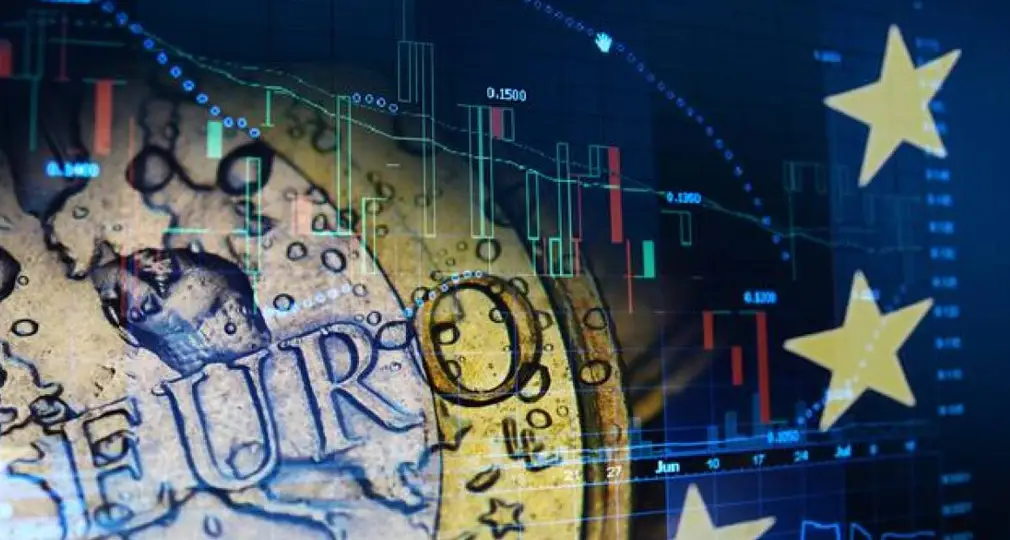The development of the European Union (EU) and the process of its joining by countries have influenced them significantly. In addition to innovations in the economy, trading, political, and other sectors, the EU has also brought its currency – the euro.
However, not all states, which have become the EU participants, have agreed to adopt its official currency. Despite the fact that it is included in the list of the most influential, stable, the second biggest reserve and very widespread currency, used by millions of people worldwide, the governments of some countries consider it risky for their economy-related and financial operations.
Financial aspects of the European Union
The EU has an interesting history of establishment that can be categorized into several periods with hard ones as well, but it remains an attractive opportunity for many countries. The argument for this is that countries, which become the EU member, get many perks, and undeniable support in a lot of important verticals. That is why this economic union continues to be a honeypot for many heads of states.
In addition to numerous advantages that the union offers its members, the finance-related factors are still the most significant. Countries have joined the monetary union and agreed on certain rules, including the acceptance of a new currency – the euro. The common currency system is undoubtedly the main aim of the union due to the reason that it makes financial operations more transparent, flexible, and convenient. Whether countries’ citizens want to invest in esports stock or purchase some material goods, they won’t have problems with the euro.
It is needless to mention that not all participants have introduced the euro into the system once they have got the membership status in the union. The list of states, which were ready to implement the euro, was extending for a long time. The union has founded the bank that is involved in all monetary aspects. However, the main bank isn’t the only financial institution responsible for regulations. The financial control is also provided by the supervision committee that includes several authorities. The EU members have certain financial obligations as well as they have to comply with a number of regulations that are important for crisis prevention when they enter the union.
The current list of countries in the EU
In general, twenty-seven countries wanted to join the union and could follow all the requirements to become its members. The list of conditions that determine whether a state is ready to be a representative of the European Union is named the “Copenhagen criteria”.
It includes rules for understanding the level of a country that is willing to join. A free-market type of economy is among the major requirements for countries. The acceptance of the European currency is also among the conditions, but some countries still don’t apply it.
As has been already mentioned, at the current time, twenty-seven states are in the union membership. Among them are:
- Czech Republic;
- Cyprus;
- Greece;
- Germany;
- Belgium;
- Sweden;
- and several more.
However, not all union members have seen the value in this membership. For example, not so long ago, Great Britain announced that it wanted to quit it. The country found several weighty arguments to withdraw from the European Union. According to its government representatives, this membership was putting Great Britain’s sovereignty at risk. Also, some Brexit supporters are insisting that the EU regulations are unreasonable and that the union doesn’t allow countries to implement new reforms.
The countries of Europe that didn’t join the EU
While Great Britan wanted to pull out of the European Union, some countries either weren’t going to join it or couldn’t do it because they didn’t match the requirements. If a country has a European geo-location, it doesn’t make it an EU member immediately.
For instance, such states as North Macedonia, Montenegro, Turkey, Albania, Kosovo, and Serbia are only preparing for joining the union. Bosnia and Herzegovina has more chances to succeed in this in the nearest future, as well as Kosovo.
The above-mentioned states have the willingness to enter the European Union and benefit from this. Most of them are potential candidates that are on the course to joining.
All the countries in Europe that have the euro as the primary currency
Although the EU consists of twenty-seven states, only nineteen of them have supported the idea of using the euro as their major currency and introduced it into the cash flow. Those states that have agreed to implement the euro are called the eurozone as they are parts of not only the EU but the single monetary space as well. The euro area has been created in 1991, with eleven countries that have been added to it initially.
These countries have agreed to introduce the euro their main currency:
- Cyprus;
- Austria;
- Belgium;
- Germany;
- Ireland;
- Greece;
- Estonia;
- Italy;
- the Netherlands;
- Slovenia;
- Slovakia;
- Luxembourg;
- Malta;
- Latvia;
- Lithuania;
- Ireland;
- Finland;
- France;
- Portugal.
At the same time, such countries as Monaco, Andorra, San Marino, and the city of Vatican also use the euro as their primary currency under the special agreement with the European Union. Montenegro and Kosovo have implemented this currency voluntarily as well, but they aren’t included in the euro area yet.
Which countries don’t use the euro?
The first countries to mention are the EU states that haven’t adopted the euro but are obliged to do this in the future under any conditions. These are the Czech Republic, Croatia, Romania, Sweden, Poland, Hungary, and Bulgaria. They have to join the eurozone but, before, they have to improve the level of their economic independence first. However, it isn’t the only reason why some EU countries haven’t adopted the euro.
5 reasons why countries don’t use the euro
One of the main goals and advantages of the European Union is the single market and trading space, which allow countries to grow their economy and make many business processes much easier. The single market participants get a unique opportunity to sell or buy goods, use services or products and make money transactions within the European Union without any obstacles. They also can buy blockchain stocks or do other financial operations easily. Of course, these operations require a single currency – the euro, but not all countries are ready to implement it.
Here are the 5 most important reasons why some states that belong to the European Union can’t implement the recommended currency.
Country citizens don’t want to use the euro
It may sound surprising but, in some states, the majority of people are against the implementation of the euro as the primary currency. For example, citizens of Poland, Hungary, and the Czech Republic don’t want the government to change anything in the current monetary system. They don’t see the pros and see only the cons in the implementation of the new currency instead of their national. The example is Sweden where people have voted against the adoption of the euro during the referendum.
Economy challenges
Citizens of other countries aren’t against innovations, but their states aren’t ready to change the currency due to some economic reasons. As the European Central Bank regulates all financial aspects in the EU and can’t provide freedom to countries, for some of them, this means big risks. For example, if Greece makes the euro its national currency controlled by the European bank, it may lead to negative consequences, such as unnecessary changes in interest rates. Such changes can damage businesses and the country’s overall economy.
Lack of inflation controlling tools
Another problem that may arise, is dealing with inflation if it occurs. Many countries have special committees that know how to cope with the crisis and what measures to take. The European Commission doesn’t provide any tools, which can be used for such purposes. That is why it is safer for countries to rely on their currency and regulators that are responsible for controlling risks.
Independence from the EU monetary policies
It is needless to say that the introduction of the new national currency and following the EU bank’s practices and regulations mean the absolute lack of independence for states. It creates many problems as countries differ in all aspects, including culture, geographical position, economy level, etc., and it is quite difficult to develop regulations that will match each of them. Independence allows countries to handle all monetary processes effectively using the tools that work well with their economic peculiarities.
The economy of the euro area can influence countries differently
To conclude, regardless of how good the economic strategies of the eurozone are, each state differs much and has a long list of its weak and strong points. That is why its policies can be especially successful for one region and literally devastating for another. Although the euro isn’t so unstable as the bitcoin price, it may seem not so reliable as the national currency.
Read more: Best Gambling Payment Providers














